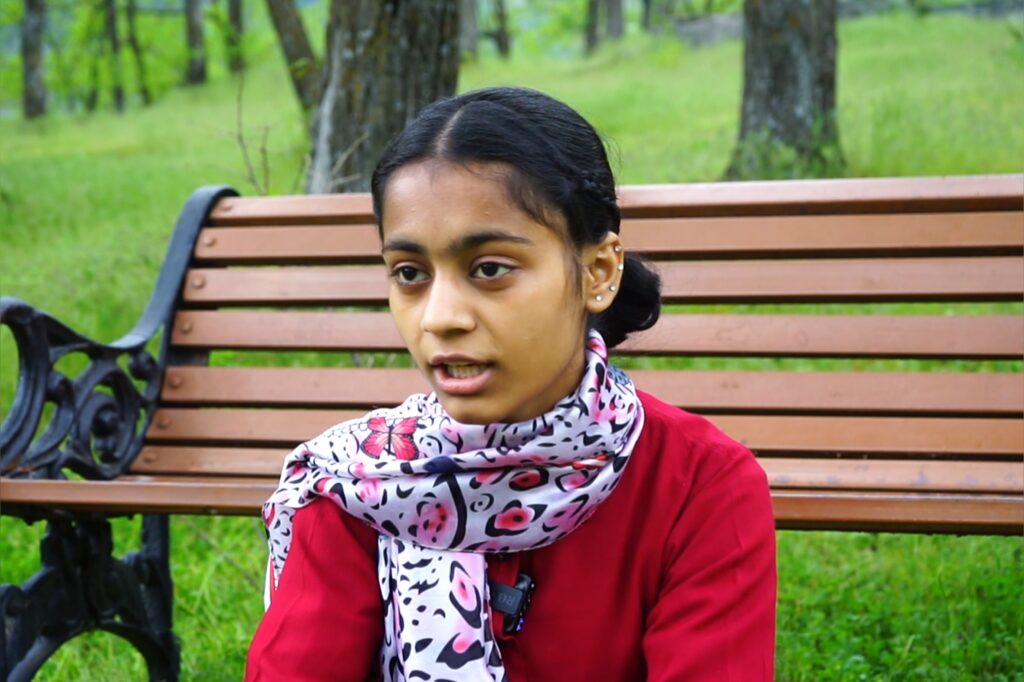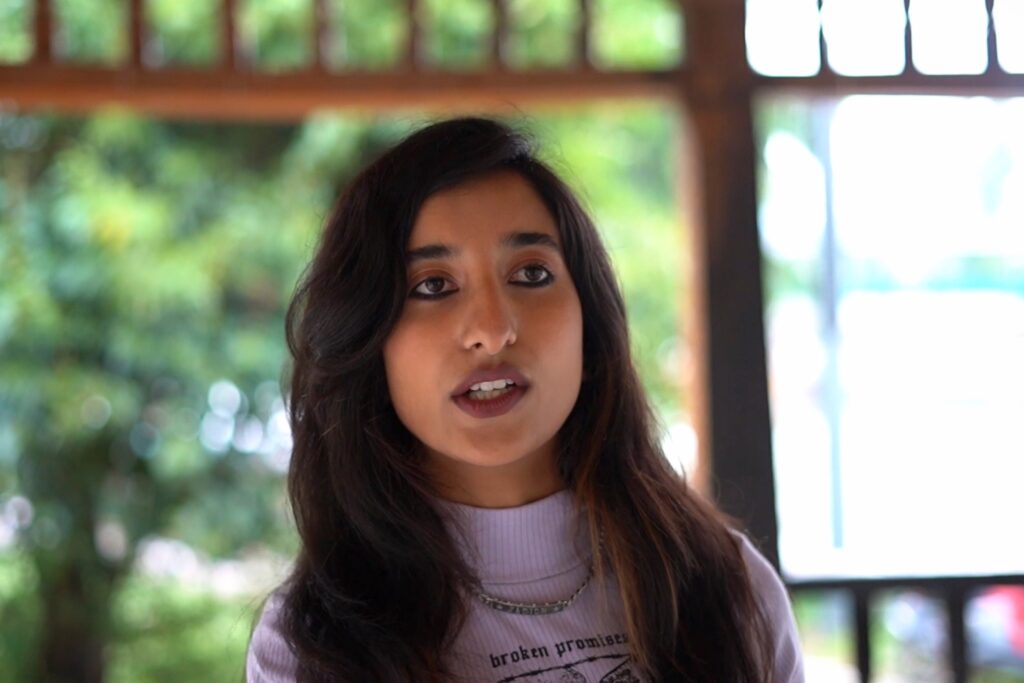
By Suhail Khan
Srinagar: The emergence of female MCs in Kashmir’s hip-hop scene is bringing about a transformative shift, as these artists challenge societal norms and push the boundaries of what is possible.
Through rap, these women are defying gender-based discrimination and using their music as a tool for empowerment.
By addressing social barriers head-on, they are shedding light on the challenges faced by women in Kashmir and inspiring change in their society.
Rap has long served as a platform for marginalized voices to express their struggles and advocate for social change.
For these female MCs, it provides a medium to communicate their experiences, frustrations, and aspirations.
Through their powerful lyrics and captivating performances, they highlight the gender disparities and stereotypes prevalent in Kashmiri society.
By stepping into the male-dominated arena of rap, these women are not only breaking barriers but also redefining societal expectations for women in Kashmir.
Their mere presence challenges traditional gender roles and norms, sending a strong message that women can excel in any field they choose.
One of the inspiring voices in this movement is Iqra Nisar, also known as Young Illa.

Iqra Nisar, also known by her stage name Illa Yung, is a ninth-grade student from Baramulla in North Kashmir who has found her passion for rap. Inspired by her first encounter with a rap song at the age of 8, Iqra realized that she too could pursue this art form. Although initially, she kept her journey a secret from her family, she began writing rap lyrics after learning more about rap from boys who helped her understand the genre.
When her family eventually discovered her involvement in the rap world, Iqra’s father strongly opposed her pursuing her passion. Despite the initial resistance, she persevered in following her dreams. It was when her father listened to her first recorded rap that his perspective changed, and he allowed her to continue her musical pursuits.
Iqra mentioned that she draws inspiration from the songs of Talha Anjum, finding them relatable and helpful in expressing her thoughts and emotions. Her lyrics often touch upon various subjects, including women-related issues, social crimes, and the pursuit of freedom, reflecting the happenings in Kashmir.
After completing the writing process, Iqra records her raps and uploads them on social media platforms. The response she has received has been overwhelmingly positive, particularly from girls who also aspire to showcase their talents. Iqra’s raps have become a source of inspiration for many, encouraging them to break down barriers and pursue their own passions. Despite the challenges some face due to family constraints, her music has played a role in motivating others to embrace their creativity and make a difference.
Iqra Nisar’s journey as Illa Young showcases the power of rap in empowering individuals and creating change. Through her music, she addresses pressing social issues, amplifies the voices of women, and inspires others to overcome obstacles in their own lives.
Another prominent figure in the Kashmiri rap scene is Mehak Ashraf.

Mehak Ashraf, a 22-year-old from the old city of Hazratbal area in Srinagar, has been involved in the rap world since she was 12 years old, performing under the stage name Enimi. Her journey into rap began when she stumbled upon a song by Eminem, which piqued her curiosity. As she delved deeper into the genre, she explored the works of artists like Nicki Minaj, Drake, and 50 Cent. However, it was Eminem’s music and his stance against white supremacy and injustice that resonated with her the most.
For Mehak, rap is a means of contributing to society, especially in a conservative environment where women are often constrained. She takes pride in her ability to challenge stereotypes and empower other girls who may feel limited in a male-dominated society. Mehak believes that her rap music provides inspiration and a sense of confidence to those who face challenges due to societal expectations.
While Mehak has received positive responses from girls who have been inspired by her rap journey, she acknowledges the challenges they face due to the prevailing mindset of people. However, she finds solace in knowing that her music boosts the confidence of others and motivates them to work towards changing stereotypes.
Mehak recognizes that breaking barriers requires going beyond the norm and doing something extraordinary. She encourages others to embrace their talent, have faith in themselves, and never stop pursuing their dreams, regardless of the obstacles they may face. Her message to others is to believe in their abilities, showcase their talents, and demonstrate to the world that they are remarkable.
Mehak Ashraf’s story exemplifies the transformative power of rap in a conservative society. Through her music, she challenges societal norms, inspires others to break free from constraints, and encourages them to embrace their talents. Her journey serves as a reminder to individuals that they have the power to make a difference and contribute to positive change, even in the face of adversity.
The journeys of Iqra Nisar and Mehak Ashraf exemplify the transformative power of rap in Kashmir.
Through their music, these female MCs defy societal norms, inspire others to break free from constraints, and encourage the embrace of individual talents.
Their determination and resilience serve as beacons of hope for others, proving that they have the ability to make a difference and contribute to positive change, even in the face of adversity.
In nutshell, the rise of female MCs in Kashmir’s rap scene signifies an empowering phenomenon. Through their music, these women are changing perceptions, advocating for gender equality, and contributing to broader social change. Their determination, resilience, and transformative lyrics serve as an inspiration for individuals to overcome barriers and fight for their rights.



